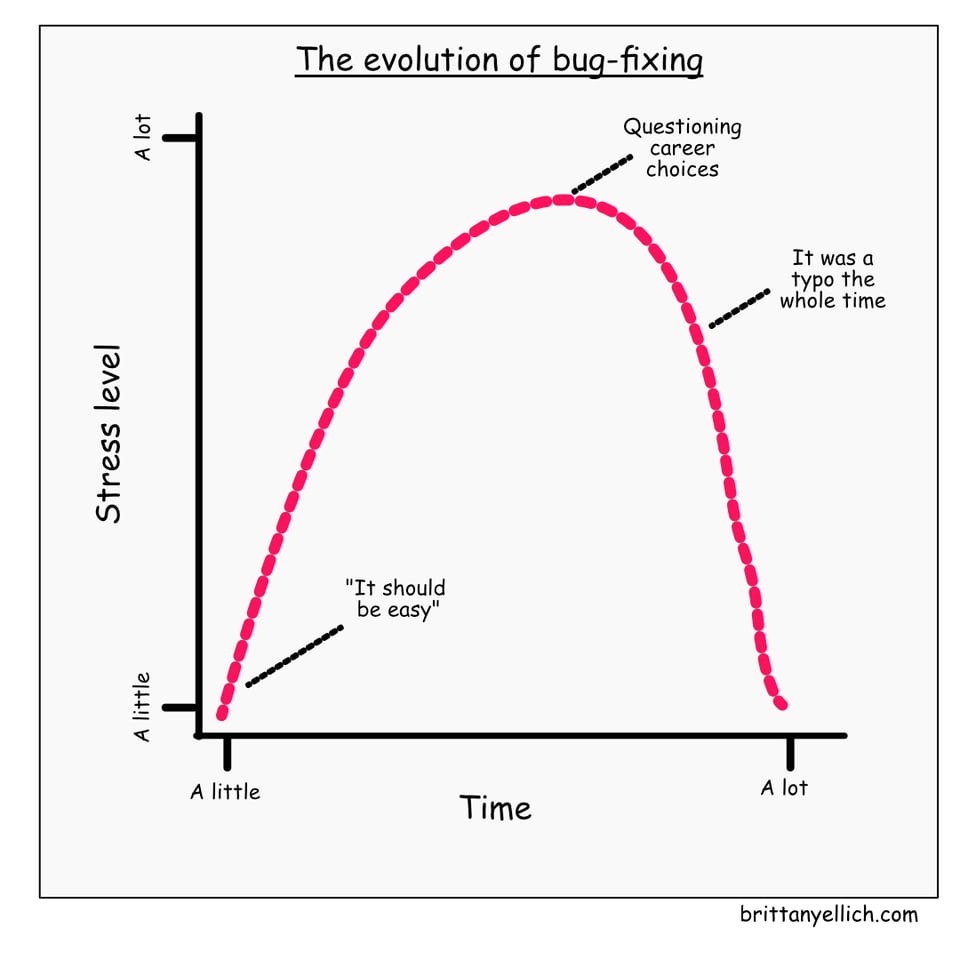Mentoring: How to Mentor
I’m celebrating 100 subscribers while sharing essential mentoring strategies for engineers! 🎉
This week I crossed a very exciting milestone… 100 subscribers to my newsletter! 🎉
There are 100 humans interested in the things that I wrote down! Most of whom I didn’t even guilt into signing up! I know numbers aren’t everything, but thank you to all the folks out there that thought this newsletter might be interesting enough to give me your e-mail address.
April Theme: Mentoring
This week we are going to continue with our theme of mentoring with “How to Mentor”. This is a follow up to last week on How to be Mentored.
As you climb the career ladder as a software engineer, even if you don’t go down the management route, it is likely that mentoring will be an expectation of your role. It is often considered a very important and sought after skill in more senior engineers. But many folks never receive any direction on how to do it!
In this issue we will go over a few mentoring strategies that can help you get started with this skill if you feel stuck.
Why Mentoring Matters
Mentoring isn’t just beneficial for the mentee. As a mentor, you’ll deepen your understanding of concepts, expand your communication skills, and develop leadership capabilities that are critical for senior roles. It’s also very rewarding to watch someone that you’ve guided tackle challenges that they once found intimidating.
Five Key Mentoring Strategies
1. Meet Them Where They Are
Every mentee comes with different experiences, knowledge gaps, and learning styles. Before diving into technical guidance, make sure you understand who they are and what their needs are:
Have a conversation about their background and goals
Assess their current skill level
Adapt your approach to match their learning style
2. Guide, Don't Solve
It's tempting to jump in with solutions, especially when you could fix an issue in minutes that might take your mentee hours. Resist this urge:
Ask leading questions that help them discover solutions, like “where could we go to find this answer?”, instead of showing them where the answer is
Provide hints rather than complete answers
Celebrate their problem-solving wins, even small ones
When you do provide solutions, explain your thought process
3. Create Psychological Safety
Growth happens when people feel comfortable making mistakes and asking "obvious" questions:
Normalize not knowing things. Share your own learning moments!
Respond positively to questions, never with impatience
Create private spaces for difficult conversations
Give feedback constructively and with specific examples
4. Build Learning Paths
Random knowledge transfer is less effective than intentional skill-building:
Work together to identify specific skills to develop and paths to get there
Break down complex topics into digestible pieces
Assign progressively challenging tasks that build confidence
Schedule regular check-ins with clear agendas
5. Develop Independence
The ultimate goal of a mentor is to make yourself unnecessary:
Gradually reduce guidance as skills improve
Connect mentees with resources for self-learning
Help them build their own support network
Encourage them to mentor others in areas they've mastered
Common Pitfalls to Avoid
Micromanaging: It undermines confidence and prevents learning from mistakes
Focusing only on code: Technical skills matter, but so do collaboration, communication, and career navigation skills
One-size-fits-all mentoring: Different people need different approaches
Getting Started
You don't need formal authority to begin mentoring. Start small:
Offer to do code reviews with explanations, not just corrections
Invite a junior developer to pair program on a complex task
Share resources that helped you overcome similar challenges (and where you found them!)
Make yourself approachable for questions and offer to help as much as possible
Remember that effective mentoring isn't about showing how much you know, it's about helping others grow into their potential while continuing to develop yourself.
When both mentor and mentee approach the relationship with intention and openness, the benefits extend far beyond individual careers to strengthen the entire engineering organization.
The Deep Dive
Want to dive deeper into mentoring? Check out “Developers Mentoring Other Developers” by Gergely Orosz.
Thank you!
If you made it this far, then thank you! Next week we will be discussing How to Find a Mentor.
Here’s a silly web comic I made this week:

Have comments or questions about this newsletter? Or just want to be internet friends? Send me an email at brittany@balancedengineer.com or reach out on Bluesky or LinkedIn.
